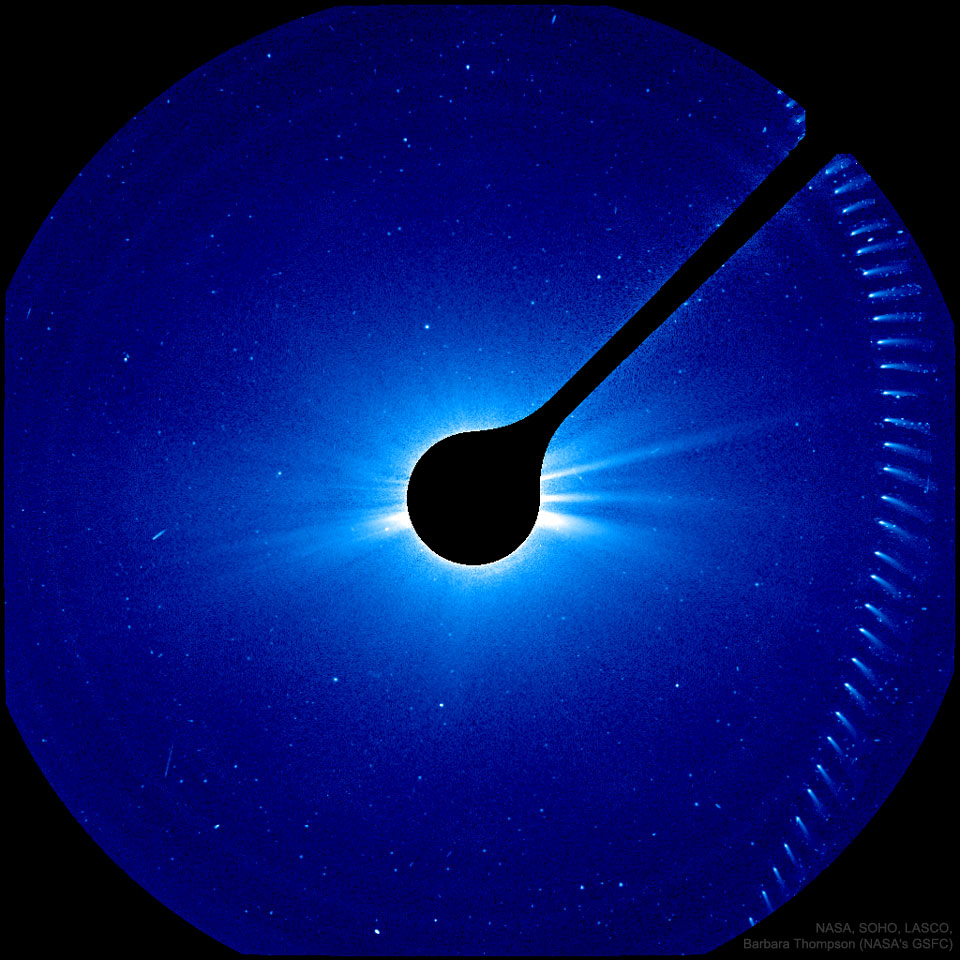 Comet Machholz Approaches the Sun
Comet Machholz Approaches the Sun
Image Credit: NASA, SOHO, LASCO, Barbara Thompson (NASA's GSFC)
Explanation: Why is Comet Maccholz so depleted of carbon-containing chemicals?
Comet 96P/Machholz's original fame derives from its getting closer to the Sun than any other short period comet -- half as close as
Mercury -- and doing so every five years. To better understand this unusual comet, NASA's Sun-monitoring
SOHO spacecraft tracked the comet during its latest
approach to the Sun in October. The
featured image composite shows the tail-enhanced comet swooping past the Sun. The Sun's bright surface is hidden from view behind a dark occulter, although parts of the Sun's extended
corona are visible. Neighboring stars dot the background. One hypothesis holds that these close solar approaches somehow cause
Comet Machholz to shed its
carbon, while another hypothesis posits that the comet formed with
this composition far away -- possibly even in
another star system.


No comments:
Post a Comment